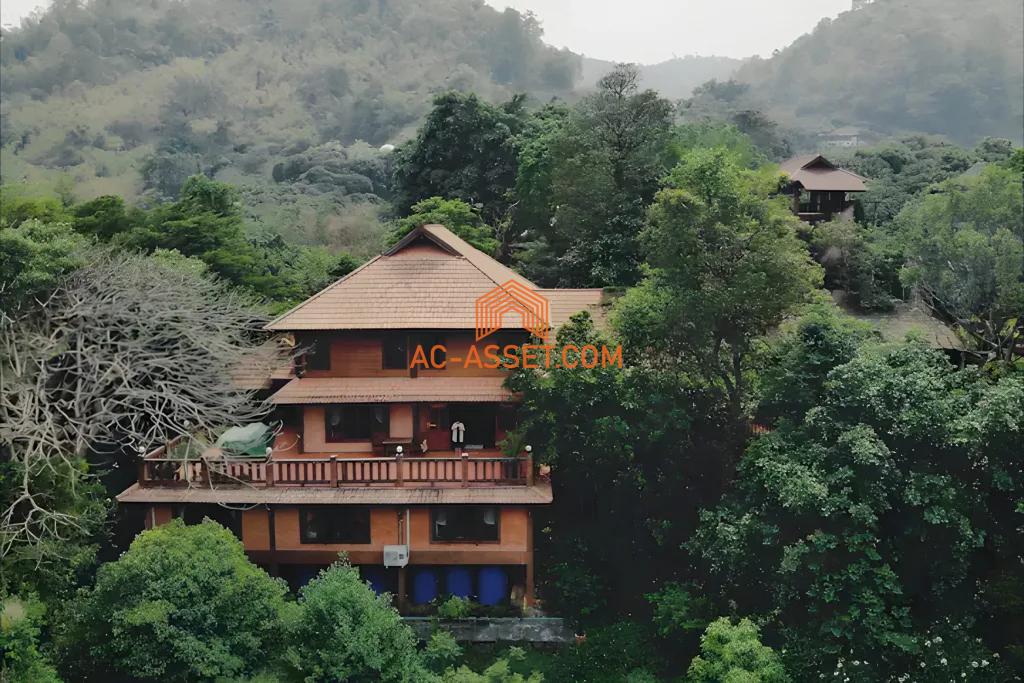
Thailand, with its breathtaking landscapes, vibrant culture, and rapidly growing economy, has become an increasingly attractive destination for real estate investors. Whether you’re looking to invest in a vacation home, rental property, or commercial real estate, Thailand offers a wealth of opportunities. This guide will explore the benefits of investing in Thai real estate, legal considerations, popular locations, and tips for making a successful investment.
Why Invest in Thailand?
Thailand’s appeal goes beyond its famous beaches and warm weather. Here are some compelling reasons why Thailand is a prime location for real estate investment:
- Strong Tourism Industry: Thailand is one of the world’s most visited countries, attracting over 40 million tourists annually (pre-pandemic). This robust tourism industry fuels demand for rental properties, making it an excellent market for vacation rentals and Airbnb investments.
- Growing Economy: Thailand’s economy has shown consistent growth, with GDP increasing by an average of 3-4% annually over the past decade. The government is actively investing in infrastructure projects, including the Eastern Economic Corridor (EEC), which is expected to boost property values in the surrounding areas.
- Affordable Property Prices: Compared to other popular tourist destinations, Thailand offers relatively affordable property prices. Whether you’re interested in a beachfront condo in Phuket or a villa in Chiang Mai, you’ll find that your investment can go further here.
- Favorable Investment Climate: Thailand has made it easier for foreigners to invest in real estate. With clear regulations on foreign ownership and the ability to obtain long-term leases, the country provides a secure environment for property investors.

Legal Considerations
Before diving into the Thai real estate market, it’s essential to understand the legal landscape. Here are some key points to consider:
- Foreign Ownership: Foreigners cannot own land outright in Thailand, but they can own buildings and condos. For land, a common solution is to lease the land long-term (up to 30 years, with an option to renew) or to invest through a Thai company.
- Condominium Ownership: Foreigners can own up to 49% of the total floor area of a condominium building, making condos a popular investment option. The remaining 51% must be owned by Thai nationals.
- Taxes and Fees: Be prepared for various taxes and fees when purchasing property in Thailand, including transfer fees, stamp duty, and income tax on rental income. It’s advisable to consult with a local lawyer or tax advisor to understand your obligations.
- Due Diligence: Conduct thorough due diligence before purchasing property in Thailand. This includes verifying the title deed, checking for any liens or encumbrances, and ensuring that the seller has the legal right to sell the property.

Popular Investment Locations
Thailand offers a diverse range of locations for real estate investment, each with its unique appeal. Here are some of the top spots to consider:
- Bangkok: The capital city is a bustling metropolis with a thriving real estate market. Bangkok offers a mix of luxury condos, commercial properties, and affordable apartments, making it an ideal location for both residential and commercial investments.
- Phuket: Known for its stunning beaches and luxury resorts, Phuket is a top destination for vacation homes and rental properties. The island’s popularity with tourists ensures a steady demand for short-term rentals.
- Chiang Mai: For those seeking a more laid-back lifestyle, Chiang Mai offers a charming blend of culture, nature, and affordable real estate. The city is particularly popular with retirees and digital nomads.
- Pattaya: Located just a short drive from Bangkok, Pattaya is known for its vibrant nightlife and booming property market. The city attracts a mix of tourists, expats, and investors looking for both residential and commercial properties.
- Eastern Economic Corridor (EEC): The EEC is a special development zone that includes parts of Chonburi, Rayong, and Chachoengsao provinces. The Thai government is heavily investing in this area, making it a promising location for future property value appreciation.

Tips for Successful Investment
- Work with Reputable Agents: Choose a well-established real estate agent who understands the local market and can guide you through the buying process.
- Visit the Property: Whenever possible, visit the property in person to assess its condition, location, and surroundings. Photos and videos can be helpful, but there’s no substitute for seeing it yourself.
- Understand the Market: Research the local real estate market to understand trends, demand, and potential risks. Knowing when and where to buy can significantly impact the success of your investment.
- Consider Long-Term Potential: Think about the long-term potential of your investment. While short-term gains can be attractive, properties that appreciate over time can offer more substantial returns.
- Consult Professionals: Engage with local legal and financial professionals who can help you navigate the complexities of Thai property law and tax regulations.
Conclusion
Investing in real estate in Thailand offers numerous opportunities for those looking to diversify their portfolio or find a tropical retreat. With its growing economy, thriving tourism industry, and diverse property market, Thailand is a destination that should be on every investor’s radar. By understanding the legal landscape, choosing the right location, and following best practices, you can make a sound investment that will pay off for years to come.
Whether you’re drawn to the bustling streets of Bangkok, the serene beaches of Phuket, or the cultural charm of Chiang Mai, Thailand has something to offer every investor. Take the time to explore your options, do your research, and you’ll find that investing in Thai real estate can be a rewarding experience.

